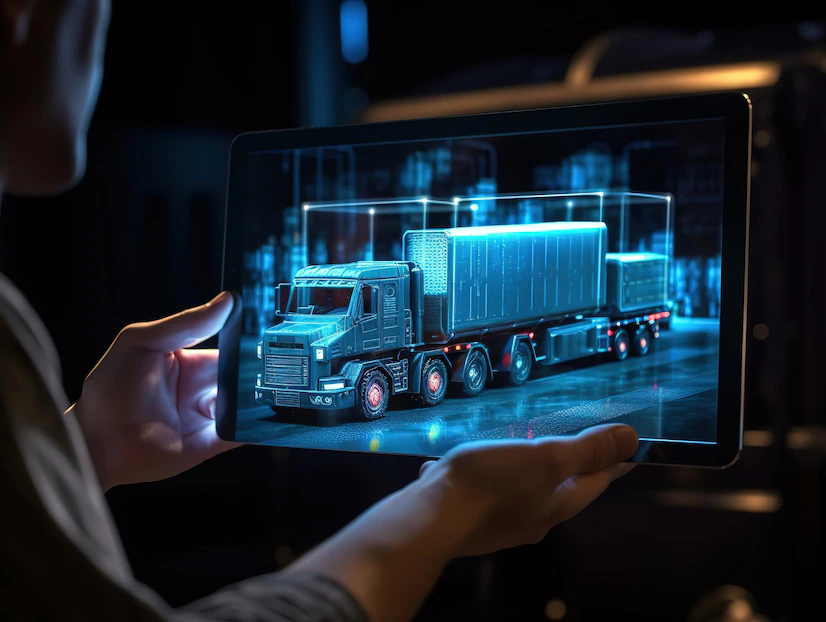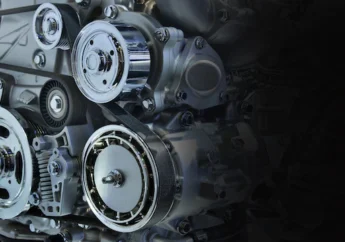Dual-Use of Tracking Systems in Trucks: Improve Safety and Efficiency
by Ankita Tripathy Automotive Published on: 13 January 2024 Last Updated on: 11 November 2024

In the modern transportation industry, efficiency and safety are paramount. Trucks, as the backbone of this sector, carry a significant responsibility for timely deliveries while ensuring road safety. The integration of tracking systems in trucks has emerged as a revolutionary step towards achieving these goals. These systems are not just tools for monitoring; they play a pivotal role in enhancing both operational efficiency and safety.
In the US, there are various emerging feel management companies. There are many fleet management dealers with franchises in these agencies.
For instance, Tourmo.ai is one of the leading fleet management franchises in the US.
You can become a fleet management dealer with their franchise.
Most dealers hold multiple franchises in the US. For instance, you may have a Tourmo franchise alongside the Samsara, CameraMatics, and other franchises.
The Advent of Tracking Technology in Trucking
The use of tracking systems for trucks has evolved from a basic need to monitor the location of vehicles to a sophisticated means of managing entire fleets. Initially, these systems were primarily focused on providing real-time location data. However, their capabilities have significantly expanded.
Today, they offer insights into driving patterns, fuel usage, vehicle health, and much more. This evolution marks a significant leap in how transportation businesses operate, shifting from reactive to proactive management.
The franchises play a significant role in increasing the prevalence of tracking technology in the dynamic logistics industry of the US.
There were 5.27 million cases of transportation accidents. Many of them were heavy commercial vehicles.
According to the latest statistics, the National Safety Council of the USA says that 5837 trucks were involved in fatal crashes in a year.
Tracking Technology to the Rescue
The franchisee dealers have small offices and online portals, too. They provide fleet tracking subscriptions from these PoS. Most subscriptions are annual.
But Why Choose These Franchisee Companies?
The answer is simple.
They combine GPS technology with a third-party tracking feature.
The GPS shares real-time data to identify the positions of the trucks. While facing dangers, they can send SOS. The signal conveys coordinate data with other details like the driver’s personal data and cell phone status.
Why Are the Franchises Better Than D2C Vendors?
In the US, the franchise business network is quite potent.
In the US, around 780,000 businesses are franchises. Hence, we can infer that franchising is a viable business in the US. At the same time, customer satisfaction is a significant reason for its growth.
But How Do Franchises Ensure Safety and Efficiency?
They have access to the niche market quickly. Moreover, they have physical, social, and professional terms with many allied businesses.
I’ll use an instance here to help you understand.
Suppose you are a business providing fleet management services. Hence, you have connections with many logistics and transportation companies. You may also have connections with individual drivers and drivers’ cooperatives.
Most fleet service companies will want to use your local network to spread your business.
At the same time, it is favorable for service users. They can quickly shuffle between service providers. As a result, they can choose the safest service vendor. They can also develop a long-term relationship with the most reliable franchisee in the market.
This will bring down the chances of truck accidents.
Again, there are many emerging tracking system providers in the US. The US fleet management service industry is currently worth USD 10.95 billion. However, Data Bridge Market Research says the industry will grow at a CAGR of 11.4% until 2031.
Therefore, most companies want to capture as much market share as possible.
How Many Franchisees Help?
Suppose you are a franchise. When a fleet service company contacts you, it will hope to use your local network. Hence, you can help them penetrate the market using your franchisee.
Enhancing Road Safety
One of the most critical aspects of these tracking systems is their contribution to road safety. By monitoring driving behavior, these systems can identify risky behaviors like speeding, harsh braking, or erratic steering.
This information enables fleet managers to provide targeted training and feedback to drivers, promoting a culture of safety. Moreover, advanced systems can send real-time alerts to drivers, warning them of potential hazards, and helping to prevent accidents before they occur.
Boosting Operational Efficiency
Apart from safety, tracking systems are invaluable in enhancing the operational efficiency of trucking businesses. By analyzing data on routes, stops, and idle times, these systems help optimize routes, reduce fuel consumption, and improve delivery times.
This level of efficiency is crucial in an industry where margins are often tight and customer expectations are high. Real-time tracking also enables better communication with customers, providing them with accurate delivery times, which enhances customer satisfaction and trust.
Reducing Environmental Impact

An often-overlooked advantage of tracking systems in trucks is their role in reducing environmental impact. Efficient routing and driving behavior monitoring lead to lower fuel consumption and, consequently, reduced emissions.
This is increasingly important as the world shifts its focus towards sustainability. Companies utilizing these systems are not only improving their bottom line but also contributing to a healthier planet.
Beyond the Basics: A Closer Look
While the benefits of truck tracking systems are evident, it is crucial to understand their broader implications. They are not just about tracking; they are about understanding and improving every aspect of trucking operations. The data collected offers invaluable insights into fleet management, maintenance needs, and even compliance with regulatory requirements. This comprehensive approach is what makes these systems a game-changer in the industry.
The Future of Trucking with Tracking Systems
The future of trucking is undoubtedly intertwined with the advancement of tracking technology. The next generation of these systems is expected to integrate with emerging technologies like autonomous trucks, IoT devices, and advanced analytics, further enhancing their capabilities. This integration will not only continue to improve safety and efficiency but also pave the way for new business models and opportunities within the transportation industry.
Franchising as a New Business Model
Franchising can help many emerging AI fleet management companies to flourish. The sooner they move, the quicker they can capture the lion’s share of the US market.
But isn’t it a win-win equation between franchisors and franchisees?
Certainly.
There’s no doubt that the franchisees can leverage new operating areas for the tracking service companies. However, these companies can also help the franchisees to ensure business growth.
Brands like Samsara have B2B ties with many logistics vendors. Some of the companies include DHL, Estates, Liberty, and others.
If you get a franchise from Samsara, you will get more contracts for installing tracking GSP and AI systems from these companies.
Suppose you had a contract for 19 DHL trucks.
After becoming a Samsara franchisee, DHL will instill more trust in you.
Your contract size will increase.
In this way, it’s a win-win deal.
Steering Towards a Brighter Tomorrow
The dual-use of tracking systems in trucks for safety and efficiency is a clear indicator of the industry’s commitment to progress. These systems represent a significant step forward, not just in terms of operational capabilities but also in fostering a safer, more sustainable, and customer-focused trucking landscape. As technology continues to evolve, so too will the ways in which we utilize these systems, steering the industry toward a brighter and more efficient tomorrow. The franchisee model will also show a new path to fleet-tracking businesses.
Exploring Why Franchises Might Fail
We understand that fleet management franchising is an emerging business in the US.
So, many emerging franchisors and franchisees will be susceptible to failure until the market stabilizes.
It is worth remembering that 50% of the franchises fail in the US market.
But they are stuck in a two-way dilemma here.
If you don’t act with urgency, others will. And they will steal away the significant market share. When the market stabilizes, the risk-takers will be the winners.
So, I will recommend some common reasons for the failure of your franchise here.
Case 1
You are the franchisor. You have less market experience. You see market growth opportunities in the fleet management sector. And you act impulsively.
You sell to unqualified, undercapitalized, and naive franchisees.
As a result, the franchisees will act unrealistic or fail to align with your business goals.
Case 2
You are a franchisee. You seek and grab opportunities in the fleet management sector.
Then you take up too many franchisees. As a result, you cannot deliver the expected results to any of the franchisors. Eventually, your franchising contracts get canceled.
Case 3
You take a franchisee from an untested brand. They have yet to excel in creating robust software.
In most considerations, their after-sales service network will be poor as well.
But why would you take such a franchisee?
Firstly, it may be cheaper. Secondly, you need to find out whose services are better.
When you sell their service to customers, your market reputation is bound to go hay way.
The Bottom Line………
In conclusion, we can say that franchising is the most suitable way for your business to grow in the fleet management service sector.
However, franchising is not the only way you can grow your business.
The safety and security of the service tenants depend on your fleet tracking features.
The camera tracking should be seamlessly connected with AI. Most brands are coming up with more innovative security features. Hence, we hope the safety of commercial trucks can be ensured soon.
Read Also:



































































































